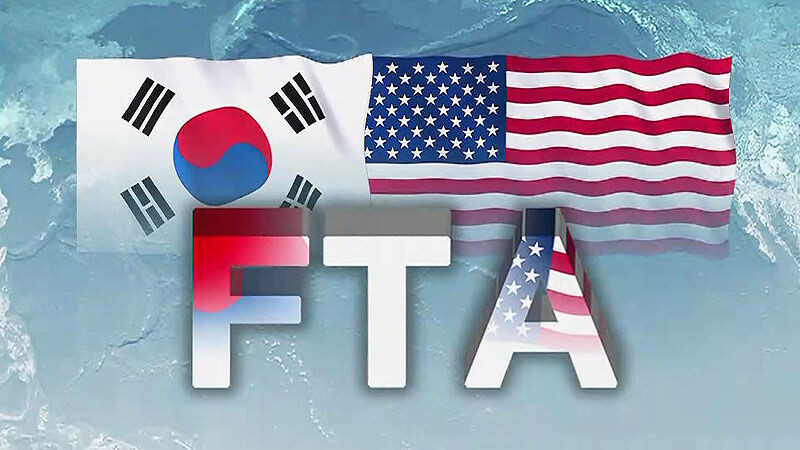hankyoreh
Links to other country sites 다른 나라 사이트 링크
S. Korea wins investor-state dispute settlement with US investor regarding land redevelopment

The South Korean government emerged victorious for the first time in an investor-state dispute settlement (ISDS) cases initiated by a US investor in connection with land redevelopment. But no determination has yet been made on whether the South Korean expropriation system is in violation of the South Korea-US Free Trade Agreement (KORUS FTA).
The Ministry of Justice announced on Sept. 30 that it had won an arbitration decision in its favor on Sept. 27 in an ISDS case by a US investor demanding around US$3 million in reparations. Contending that while they had received expropriation compensation for a housing development zone they owned in the Daeheung neighborhood of Seoul’s Mapo District but that the amount fell short of a “fair market price,” the US investor was requesting around US$2 million to reflect the difference in land compensation according to the KORUS FTA, along with US$1 million in compensation for emotional damages.
The South Korean government stressed that the real estate purchased by the petitioner did not represent an investment within the designated scope of protections under the KORUS FTA – an argument that the arbitration court ultimately sided with. The determination was made on the fact that the petitioner was a citizen of the Republic of Korea rather than the US at the time the KORUS FTA went into effect on Mar. 15, 2012. The arbitration court also said the petitioner did not represent an “investor” as defined by the KORUS FTA, noting that their purchasing of real estate to serve as a residence for their family, only to subsequently rent out a portion of it, could not be viewed as “typical” investment behavior.
Song Kee-ho, an attorney and expert in international investment disputes, noted that the “arbitration decision is limited in significance, since it was not a victory on the merits in terms of whether the South Korean expropriation appraisal and assessment system is lawful according to the KORUS FTA.”
“It means that a person who was not a US citizen at the time the KORUS FTA went into effect is not entitled to investor protections according to the KORUS FTA,” he explained.
By Choi Woo-ri, staff reporter
Please direct comments or questions to [english@hani.co.kr]

Editorial・opinion
![[Column] Has Korea, too, crossed the Rubicon on China? [Column] Has Korea, too, crossed the Rubicon on China?](https://flexible.img.hani.co.kr/flexible/normal/500/300/imgdb/original/2024/0419/9317135153409185.jpg) [Column] Has Korea, too, crossed the Rubicon on China?
[Column] Has Korea, too, crossed the Rubicon on China?![[Correspondent’s column] In Japan’s alliance with US, echoes of its past alliances with UK [Correspondent’s column] In Japan’s alliance with US, echoes of its past alliances with UK](https://flexible.img.hani.co.kr/flexible/normal/500/300/imgdb/original/2024/0419/2317135166563519.jpg) [Correspondent’s column] In Japan’s alliance with US, echoes of its past alliances with UK
[Correspondent’s column] In Japan’s alliance with US, echoes of its past alliances with UK- [Editorial] Does Yoon think the Korean public is wrong?
- [Editorial] As it bolsters its alliance with US, Japan must be accountable for past
- [Guest essay] Amending the Constitution is Yoon’s key to leaving office in public’s good graces
- [Editorial] 10 years on, lessons of Sewol tragedy must never be forgotten
- [Column] A death blow to Korea’s prosecutor politics
- [Correspondent’s column] The US and the end of Japanese pacifism
- [Guest essay] How Korea turned its trainee doctors into monsters
- [Guest essay] As someone who helped forge Seoul-Moscow ties, their status today troubles me
Most viewed articles
- 1[Column] The clock is ticking for Korea’s first lady
- 2After 2 months of delayed, denied medical care, Koreans worry worst may be yet to come
- 3[Column] Has Korea, too, crossed the Rubicon on China?
- 4US overtakes China as Korea’s top export market, prompting trade sanction jitters
- 5[Correspondent’s column] In Japan’s alliance with US, echoes of its past alliances with UK
- 6Hong Se-hwa, voice for tolerance whose memoir of exile touched a chord, dies at 76
- 7All eyes on Xiaomi after it pulls off EV that Apple couldn’t
- 8[News analysis] After elections, prosecutorial reform will likely make legislative agenda
- 9More South Koreans, particularly the young, are leaving their religions
- 10John Linton, descendant of US missionaries and naturalized Korean citizen, to lead PPP’s reform effo